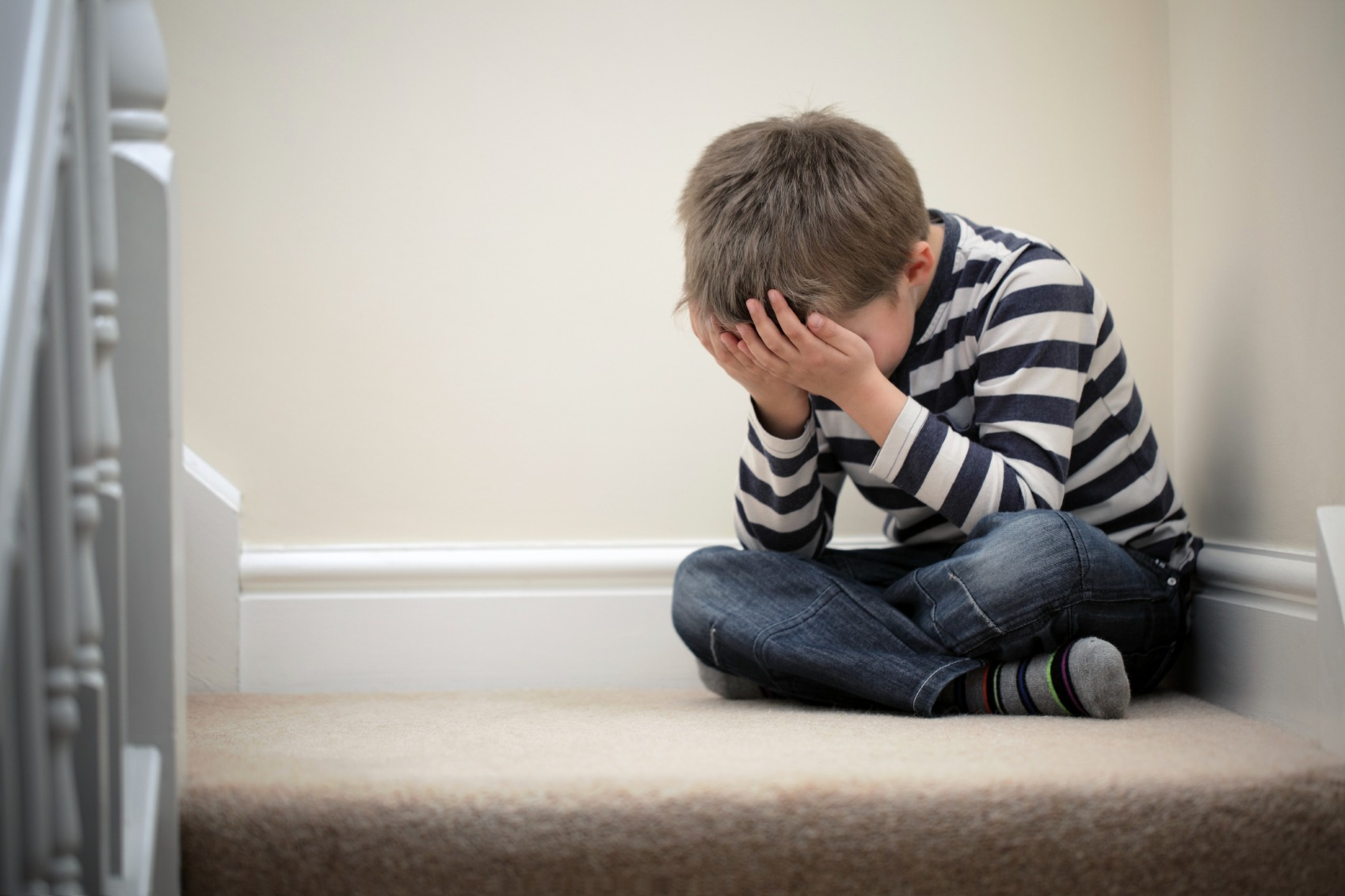
Parenting is undoubtedly a rollercoaster ride that promises the highest and lowest highs. However, the roadmap for family life takes on a different complexion altogether when one vital player, the father, is missing from the field.
Suddenly, the weight of every decision, every challenge, and every joyous moment falls squarely on the shoulders of the remaining parent. The child’s unique circumstances influence their emotional, social, and economic well-being.
But before the narrative turns too bleak, it’s essential to remember that while challenges abound, opportunities for resilience, growth, and happiness are still very much within reach.
Let’s dive deep into how an absent father affects different facets of a child’s life. Because understanding is the first step to healing, and awareness is the first step to change.
How Important Is A Father In A Child’s Life?
A father’s presence is the backbone of a child’s overall development, offering emotional security, life skills, and a foundational role model. When a father is absent, it’s as if a vital piece of the puzzle is missing, creating gaps that affect not just the child’s self-worth but also their social interactions, academic success, and future financial stability. Father’s absence resonates deeply, influencing a myriad of life outcomes.

The Psychological Effects
Psychological effects in children with absent dad is a nuanced and multifaceted issue, deserving a close look. It’s not just the tangible factors—like the absence of a second income or another set of hands to help around the house—that matter. A psychological landscape undergoes significant alterations when a father is absent, and its impact can be long-lasting on their emotional well being and child development.

Self-Esteem Issues
One of the first places this absence is felt is in a child’s self-esteem. The inner narrative a child constructs starts to show cracks. Questions like “Why isn’t Dad here? Did I do something wrong?” begin to surface.
This emotional turmoil can manifest in various ways: high school dropouts, social withdrawal, or even overcompensation by excelling in school or sports as if to ‘win’ the missing parent back. Either way, the child grapples with a compromised sense of self-worth that isn’t easily mended.
This struggle often extends beyond childhood, shaping their interpersonal relationships and career paths in adulthood.
Anxiety and Depression
The emotional toll doesn’t stop at self-esteem. There’s a measurable uptick in anxiety and depression among children from father-absent homes. The child may develop a heightened state of alertness, almost as if they’re always braced for another form of abandonment or disappointment.
This emotional weight might not manifest as a clinical mental health disorders in every case. Still, it can lead to coping mechanisms that are less than healthy—like drug and alcohol, early sexual activity in girls, sometimes with teenage pregnancy, or a cycle of broken relationships.

Emotional Detachment
Children with absent fathers can become masters of self-preservation, erecting emotional barriers that make it difficult to form deep connections later in life. It’s as if they’ve internalized a message that people who are supposed to care for you can disappear, so why get close to anyone?
This defense mechanism can result in a string of shallow relationships and missed opportunities for genuine intimacy. The reluctance to form meaningful bonds can, in extreme cases, even lead to emotional numbness, where the child grows into an adult who struggles with empathy or understanding the emotional context in interactions.
Educational and Cognitive Development
Those who grow up without a father face specific challenges that can influence their educational trajectory. While not every child in this situation will encounter these issues, the absence of a father does statistically correlate with specific academic and cognitive setbacks.
Academic Struggles
Children from homes without a father tend to show academic struggles more frequently. Why? Because they often lack the motivational push that comes from a two-parent home. It’s not just about homework help; it’s about someone being there to celebrate the A’s, encourage re-dos of disappointing projects, and set the tone for academic aspirations, affecting their participation in extracurricular activities and even their educational ambitions.
They may shy away from challenging programs or courses because they need someone to bolster their confidence. The once-dreamed-of college education becomes a ‘maybe,’ then a ‘wish,’ and eventually an unrealized potential because of low self esteem issues.
Cognitive Delays and Behavioral Concerns
Researchers suggest that children in homes without a father figure often face challenges in cognitive abilities, including problem-solving and critical thinking. These limitations can snowball over time, making it more difficult for them to adapt to increasingly complex educational demands.
Furthermore, children from father absent household tend to display behavioral issues at a higher rate. It’s not about being the “class clown” or the “quiet kid in the back” but a deeper issue of disruptiveness that interferes with the learning environment, especially in early childhood.

Economic Consequences
Economic stability is a pillar that supports multiple aspects of a child’s well-being—be it education, healthcare, or even self-esteem. A stressed parent is less emotionally available, and financial hardship often forces difficult conversations at home about what can and can’t be afforded.
These economic stressors aren’t lost on the kids; they internalize them, sometimes developing anxieties about money from a young age. This early exposure to financial instability can have enduring impacts, affecting their economic stability in adulthood and potentially perpetuating a cycle of hardship.
When each day is a balancing act of necessities, dreams like career planning or long-term investments seem like luxuries. This shortsightedness, born out of necessity, can lead children to prioritize quick fixes and immediate gains over long-term stability.
They may opt for jobs immediately after high school, bypassing further education or training that could lead to a more secure but distant financial future. The absence of a father figure to share the economic burden can lead to these truncated aspirations, as the immediacy of needs outweighs the patience required for fulfilling, stable careers.
This isn’t just about missed opportunities but about shaping an economic outlook focusing on survival rather than growth.
How Do You Deal With an Absent Father?
Dealing with the absence of a father is a complex journey, requiring a toolbox of strategies to manage the emotional, educational, and economic fallout. This isn’t a one-size-fits-all scenario; the path to coping is as unique as your family. However, several approaches can help you navigate through this challenging landscape, even without a complete father involvement.

Seek Professional Guidance
Therapy isn’t just for fixing something broken; it’s about strengthening what’s already there and providing tools for resilience. When a father is absent, the remaining family members often need a space to express their emotions, understand their feelings, and build coping strategies.
A therapist or counselor can offer a neutral ground to explore these topics freely. It’s not just the child who might benefit; the parent left behind can also gain invaluable insights into supporting their child while dealing with their emotional turmoil. And let’s be honest, sometimes friends and family, despite their best intentions, offer advice that’s more biased than helpful.
A professional can provide evidence-based strategies tailored to your situation, giving you actionable steps for improvement.
Find Supportive Communities
In today’s digital age, support is more accessible than ever. While a screen can’t replace human connection, online forums, and support groups have become havens of shared experience and wisdom. These platforms can allow you to connect with others who understand what you’re going through.
But it’s more than emotional support; these communities often share resources like scholarship opportunities for single-parent households, legal advice, or recommendations for child-friendly activities that don’t break the bank.
Children, too, can find age-appropriate groups to meet peers who face similar challenges. Sometimes, knowing you’re not alone can make a world of difference.

Look for Alternative Role Models
A father may be irreplaceable, but that doesn’t mean other male figures can’t provide meaningful relationships and guidance. Uncles, grandfathers, or close family friends can offer kids another perspective and emotional support.
Schools and community centers also offer mentorship programs that can pair your child with someone trustworthy and inspiring. While these figures won’t fill the exact void left by an absent father, they can still offer valuable life lessons and emotional support.
For single parents, these role models can also serve as a much-needed respite, showing your child that responsibility, kindness, and wisdom aren’t the sole territories of a father figure. They can help to normalize the idea that emotional and life guidance can come from various sources, enriching your child’s social tapestry.

A Balanced View
The absence of one key player in the family unit can sometimes lead to stronger bonds among the remaining members. Think of it as a team losing a key athlete; everyone else has to step up their game. Mothers, siblings, and extended family often rise to the occasion, filling roles they never expected and showing strength they never knew they had. As the African proverb says, “It takes a village to raise a child,” and often, that village comes through.
Furthermore, overcoming adversity can offer its own set of valuable life skills. Children who grow up with the challenge of an absent father may develop a keen sense of independence, emotional intelligence, and problem-solving abilities out of necessity. Once honed, these traits can serve them well in adult life, careers, relationships, and their future parenting roles.
Also, let’s not discount the individual child’s personality and inner strength. People are not just products of their environment; they also have innate characteristics that shape how they react to life’s challenges. Some kids show a remarkable knack for resilience, an attribute that can’t be underestimated. This resilience can be nurtured with the proper guidance and support, helping them rise above the setbacks an absent father poses.
Finally, the quality of parenting provided by the available parent can often compensate, at least partly, for what’s missing. Parenting is not a zero-sum game. The present parent’s love, stability, and structure can go a long way in mitigating the effects of absence.

Conclusion
The absence of a father is a complex issue with a ripple effect that touches nearly every aspect of a child’s life. Yet, acknowledging these challenges is the first step in turning the tide. By seeking professional guidance, leaning on supportive communities, and finding alternative role models, we can create a buffer against the negative impacts of having an absent father. We must remember that it’s not just about mitigating losses; it’s about enriching the lives of our children with the resources and emotional support they need to flourish.
The emotional and psychological hurdles are real, but they’re not insurmountable. The economic and educational challenges are daunting, but they must be defined. Our capacity to adapt, love, and grow represents our children—and us as parents or caregivers. The journey may be uphill, but the view from the top, with a life whole of learned resilience and earned triumphs, can be truly remarkable.
Join the Conversation
Your voice can be a beacon for others in similar situations. Whether you’ve personally navigated the labyrinth of emotions tied to having an absent father or you’re a single parent with insights and tips on how to support your children best, your perspectives are invaluable. So, let’s build a community where we can lean on and learn from one another. Share your thoughts, offer your advice, or even lend a listening ear to others in the comments below. By sharing, we’re not just storytelling but building a narrative that can guide and uplift others walking this challenging path.


Leave a Reply